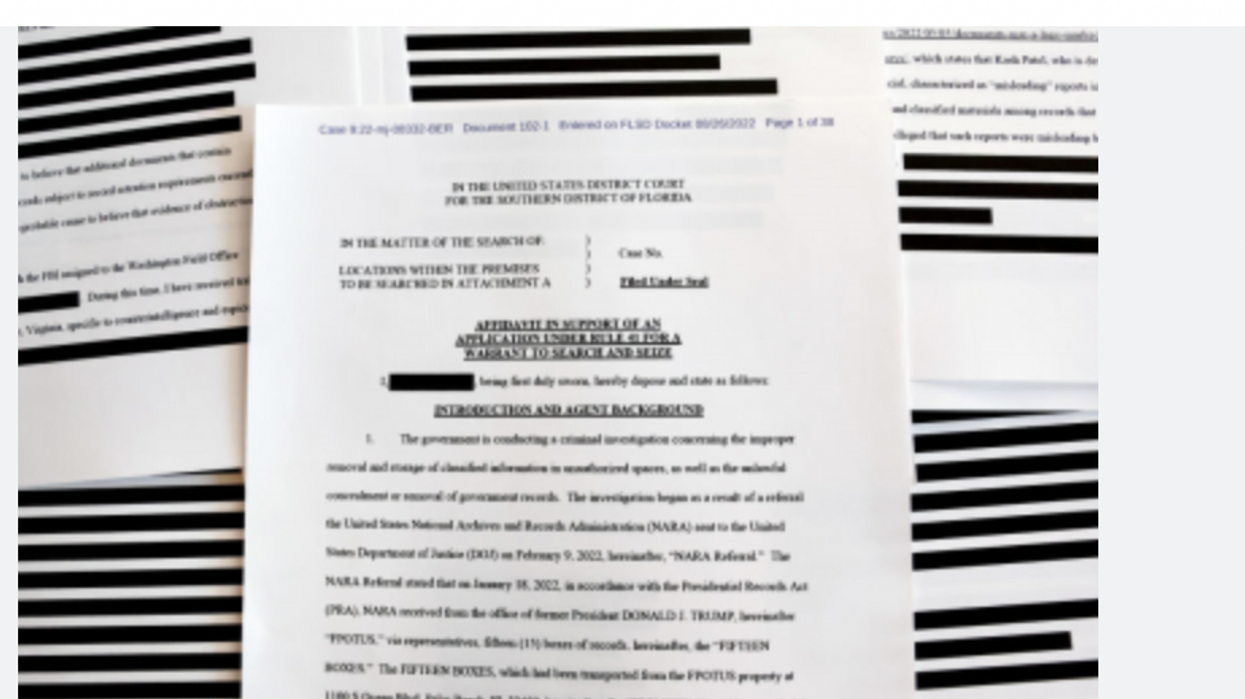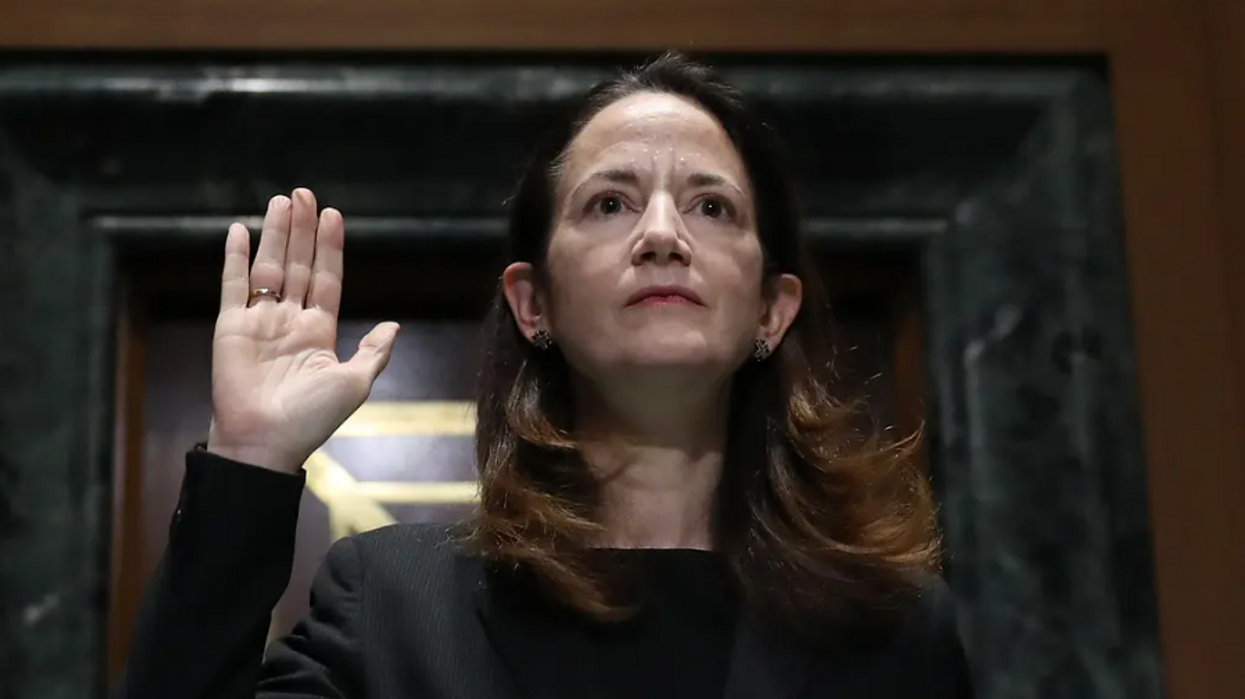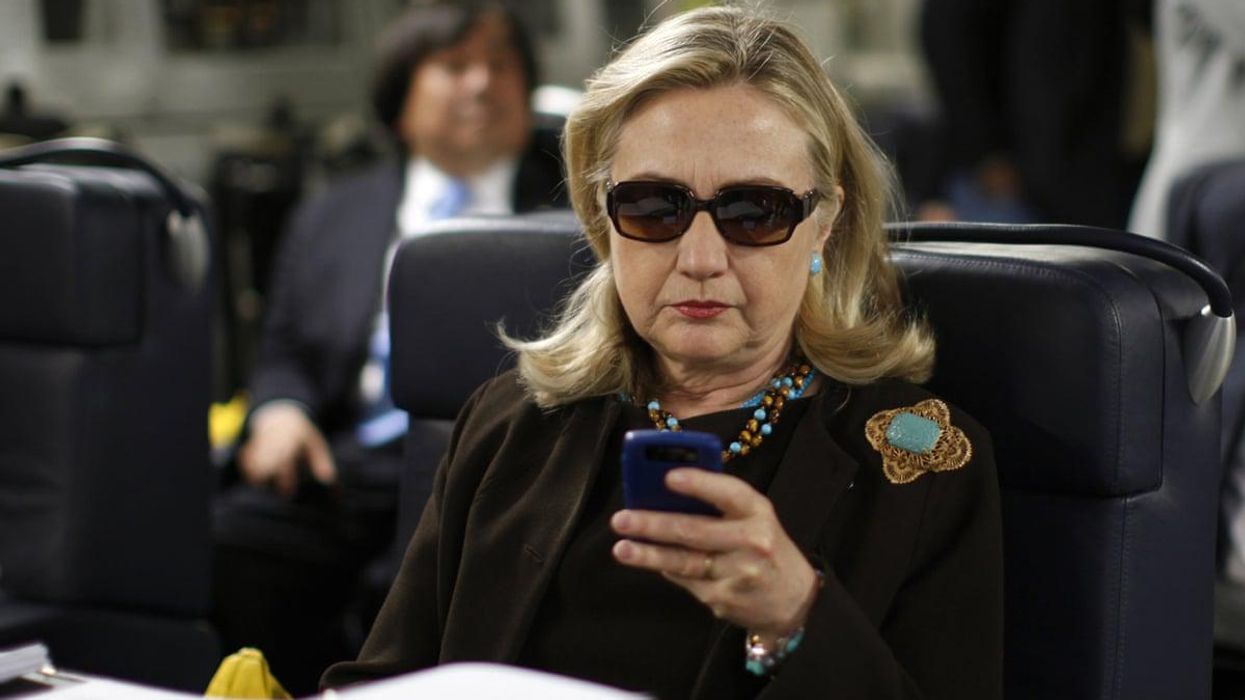The Department of Justice yesterday put a federal court judge in Florida and the 11th Circuit Court of Appeals on notice that we are headed for a Constitutional crisis, not to mention a national security nightmare. In its first filing, the DOJ notified the 11th Circuit that it intends to appeal Judge Aileen Cannon’s order that a special master be appointed to review all 11,000 documents Donald Trump removed from the White House to Mar a Lago when he left office. At the same time, the DOJ filed with Judge Cannon a motion for a “partial stay” of her order pending its appeal to the 11th Circuit.
What the DOJ is asking of the Florida judge is to exempt approximately 100 highly classified documents from her order for the special master. Trump has no legal right to claim that “he owns or has any possessory interest in classified records,” the DOJ told the judge. Addressing the issue raised by Trump that he somehow can assert executive privilege over the seized documents, the prosecutors reminded the judge that in May when the department issued a subpoena for the records held at Mar a Lago, Trump “himself declined to assert any claim of executive privilege over the classified records” the FBI seized. That would have been Trump’s opportunity to claim executive privilege, the DOJ filing said. That he failed to do so at that time, or when he turned over even more documents to the National Archive in January, should discount his recent claim of executive privilege as a delaying tactic and nothing more.
The DOJ quoted the 1974 Supreme Court case over the White House tapes, United States v. Nixon, reminding the judge that the decision found that any claim of executive privilege or any other privilege over “classified” (emphasis in the filing) records would be overcome by what the Supreme Court had called, “the government’s demonstrated, specific need” for the evidence in question, in this case, the 100 classified documents the DOJ is asking the judge to exempt from her order.
“The government, and the public would suffer irreparable harm absent a stay,” the motion said, reminding the judge that “the court correctly recognized the government’s vital interest in conducting a national security risk assessment of the possible unauthorized disclosure of the classified records and any harm that may have resulted.”
This is what is colloquially referred to as calling out the big guns. When the government puts “national security” and “risk” in the same sentence, they are putting members of the judicial branch on notice that what is at stake here is far above their pay grade to block, bar, or delay because national security is constitutionally the business of the executive branch, not the judiciary.
The rest of the DOJ motion consists of laying a groundwork and fact pattern for a potential appeal should Judge Cannon refuse to grant its request for a stay of her order regarding the classified documents. It’s complicated, but the DOJ began by explaining that the national security assessment and its investigation of Trump’s handling of the classified documents cannot be “segregated” from one another.
The motion included this blockbuster piece of news: Because of “uncertainty regarding the bounds of the court’s order,” the intelligence community (read: Director of National Intelligence, or DNI) consulted with the DOJ and decided it would have to “pause temporarily this critically important work.” Pulling the lanyard on yet another big gun, the DOJ said that “the government and the public are irreparably injured when a criminal investigation involving risks to national security is enjoined.”
DOUBLE BOOM! Not one but two big revelations here:
The DNI suspended its national security review of what may have happened to the top-secret documents Trump had in Mar a Lago because of Judge Cannon’s order. And two, the DOJ is for the first time telling the judge and the world that its investigation of Trump is not simply criminal in nature. It’s an investigation of whether or not Trump caused damage to the national security, an offense which would violate U.S. Code 793 involving the disclosure or even the movement of “national defense information” without the safeguards and security measures dictated by law for such highly sensitive material.
The DOJ spends a lot of time in its motion detailing the errors made by Judge Cannon in her order, pointing out that a special master has no need whatsoever to review classified documents because “the classification markings establish on the face of the documents that they are the government’s records, not the Plaintiff’s (Trump’s) personal records.” The DOJ points out that a review of the classified documents is not necessary for attorney-client privilege because none of them contain any communication between Trump and his lawyers. Then the government went into a lengthy disquisition on why the classified documents are not covered by executive privilege either. Again, it’s complicated and involves several Supreme Court decisions concerning assertions of executive privilege, but the gist of it is that a president or especially a former president cannot claim executive privilege over materials within the executive branch, only over materials being sought by other branches, such as a congressional committee, or by a civilian seeking to break the privilege in a judicial proceeding.
To make their point, the DOJ attorneys cited U.S. Code Section 793 specifically as “prohibiting the unauthorized release of national defense information. The classified documents are not merely relevant evidence; they are the very objects of the relevant criminal statute,” U.S. Code 793.
Then the DOJ reminded the judge that it’s not only 793 that’s at issue. “The government is investigating the adequacy of response to a grand jury subpoena for all documents in the Plaintiff’s possession ‘bearing classification markings.’” That, my friends, is a reminder that Trump is suspected of obstructing justice, because the subpoena in question, issued in May, is the one Trump did not fully and willingly respond to, giving rise to the search warrant executed by the FBI in August that turned up more than 100 classified documents he had not turned over to the government.
Practically the rest of the DOJ motion is a primer for Judge Cannon, explaining to her, since she demonstrably does not know, how a federal investigation works and how the FBI and the intelligence community are one in the same, and so barring the FBI from “reviewing” the classified documents prevents the intelligence community from doing the same thing -- something the judge apparently believed she was allowing in her order on the special master.
I know I’m overusing the phrase, “it’s complicated,” so I’ll boil it down in non-legalese.
The Director of National Intelligence is formally positioned in the chain of command over the CIA, DIA, NSA, and other parts of the intelligence community, although she, Avril Haines, presides over an office that essentially coordinates all the various arms of intelligence gathering but does not do any intelligence work itself. In other words, she has a staff, but they’re bureaucrats – in old fashioned terms, paper-pushers. She doesn’t have any agents or investigators.
So, if the DNI wants to conduct a review of materials to determine whether their mishandling has resulted in a threat to national security, Haines has to call upon the FBI to do the investigation for her. For example, if the DNI wants to know who has seen a particular classified document, or all of them for that matter, she must ask the FBI to do the interviews of the relevant witnesses, who might include aides to the former president, friends of his, or the workers at Mar a Lago who were seen on surveillance cameras carrying boxes of classified documents from one place to another.
An estimation of what potential damage might have been done to the national security cannot be done without (1) the classified documents, and (2) the FBI agents necessary to do the investigations about them.
Judge Cannon’s order on the special master, grossly slanted in Trump’s direction as it was, did not allow for this cross-pollination between the FBI and the intelligence world. Cannon thought she could bar the FBI from “reviewing” the classified documents or conducting interviews with witnesses as part of their criminal investigation, while allowing the risk assessment by the DNI to use the documents.
Major, major error. The judge was trying to appear like she gave a damn about national security by allowing the DNI investigation to go forward, while barring the FBI and DOJ criminal investigation from using the classified documents. The DOJ took several pages to spell out for her how and why that cannot be done. If you do one investigation, you do the other. The DOJ motion includes an appendix written by Alan E. Kohler, the assistant director of the counterintelligence division of the FBI, explaining in great detail, six pages of detail, why the DNI’s national security review and the DOJ’s criminal investigation of Trump are “inextricably linked,” to use the document’s language.
I rather doubt that Judge Cannon, sitting down there in Florida with her Federalist Society membership card and more than excellent MAGA credentials, even knew that the FBI has a “counterintelligence division” or that the DOJ has a national security division. She should have, naturally, because the search warrant for Mar a Lago was executed by Jay I. Bratt, the chief of the DOJ’s Counterintelligence and Export Control Section of the National Security Division. She could have learned this by reading news stories or if she missed it in the news, she’ll be able to learn it today if she reviews, all the way to the bottom, the motion filed by the DOJ today, because right there in black and white is Bratt’s signature.
The DOJ informed Trump’s lawyers they were filing the motion today, and Trump, of course, is going to oppose the motion.
The DOJ has given Judge Cannon until Thursday to exempt the 100 pages of classified documents from her order on the special master. If she does not grant the DOJ motion, they will file an appeal with the 11th Circuit at that time.
It’s all very risky, of course. There is Judge Cannon, as Trumpy of a Trumpster as ever sat on the bench, and there is the 11th Circuit, where Trump has appointed six of eleven judges.
In the past, at least, the federal judiciary right up to the Supreme Court, has shown great deference to the government when matters of national security or cases involving the military are brought. It is not the job of judges to defend the nation. It is the job of the executive branch of the government which oversees the Department of Defense and the intelligence agencies, all of which are engaged in the defense of the nation.
This may turn out to be yet another norm jettisoned by judges who believe their oath is not to the Constitution but to Donald Trump. We already have seen the damage one of them can do to the rule of law and potentially to the national security. Next week we’ll get a chance to see how many more, and how deeply, Trump has sunk his team of judicial saboteurs into the fabric of our democracy.
Watch this space.
Lucian K. Truscott IV, a graduate of West Point, has had a 50-year career as a journalist, novelist, and screenwriter. He has covered Watergate, the Stonewall riots, and wars in Lebanon, Iraq, and Afghanistan. He is also the author of five bestselling novels. You can read his daily columns at luciantruscott.substack.com and follow him on Twitter @LucianKTruscott and on Facebook at Lucian K. Truscott IV.
Reprinted with permission from Lucian Truscott Newsletter












